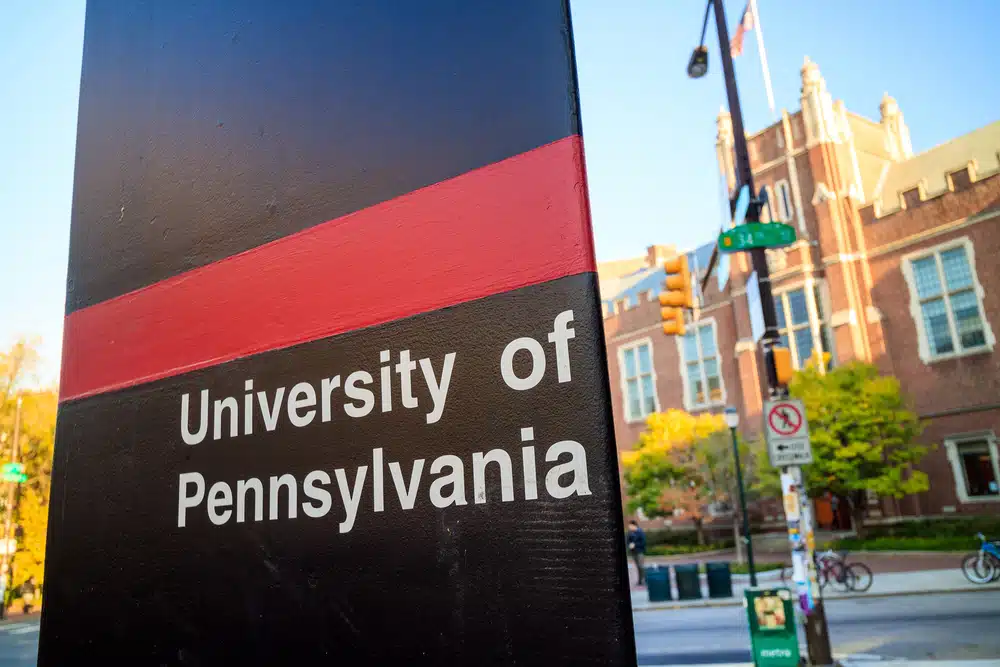Does UPenn Offer Early Action?
When it comes to college applications, high school students have several options to choose from. Among these, Early Action stands out as a facilitated option that allows prospective candidates to hear about their admission status much sooner than others. This article explores the presence of Early Action at one of the Ivy League universities, the University of Pennsylvania (UPenn). But, before delving into UPenn’s specific policies, let’s first understand this concept of Early Action.
Definition of Early Action
Early Action is an admission policy adopted by several universities and colleges. Under this policy, students can submit their applications early (typically by November) and receive an answer about their acceptance early as well (usually by mid-December). It is important to note that Early Action is non-binding, which means that even if students get accepted, they are not obligated to enroll and can choose to decline the offer.
Early Action provides students with a unique opportunity to get a head start on their college application process. By allowing them to submit their applications early, universities and colleges aim to ease the stress and uncertainty that often accompanies the college admissions journey. This policy allows students to receive an early response, giving them a sense of security and allowing them to plan their future accordingly.
Moreover, Early Action provides students with the advantage of having more time to explore other options. By receiving an early acceptance, students can confidently consider their choices and make informed decisions about their college education. This additional time allows them to thoroughly research and compare different institutions, ensuring that they choose the best fit for their academic and personal goals.
Benefits of Early Action
There are several benefits associated with applying via Early Action. Firstly, it gives students peace of mind, knowing their college plans earlier in their senior year. This can reduce anxiety and offer more time to prepare for college life. Additionally, students who are accepted through Early Action have the opportunity to start planning their transition to college sooner, whether it be looking for housing options, arranging financial aid, or connecting with future classmates.
Secondly, Early Action demonstrates to colleges that the student has a serious interest in them. By submitting their application early, students are able to convey their enthusiasm and dedication to a particular institution. This can offer an edge to their application, especially at selective institutions where demonstrated interest may factor into the admission decision. Admissions officers appreciate the initiative and commitment shown by Early Action applicants, as it indicates a genuine desire to be part of their academic community.
Furthermore, Early Action allows students to showcase their academic achievements and extracurricular involvements in a timely manner. By submitting their application early, students can highlight their accomplishments from their junior year, including any awards, leadership positions, or notable projects. This gives admissions officers a comprehensive view of the student’s abilities and potential, increasing their chances of being admitted to their desired institution.
Overall, Early Action is a beneficial option for students who are eager to begin their college journey with confidence and certainty. By providing an early response and allowing students to explore other options, Early Action empowers students to make informed decisions about their future. Additionally, it demonstrates their commitment and interest to colleges, enhancing their chances of admission. Overall, Early Action is a valuable opportunity for students to take control of their college application process and set themselves up for success.
UPenn’s Admission Policies
General Overview of UPenn’s Admission Process
Like most Ivy League universities, the admission process at the University of Pennsylvania is highly competitive. Thousands of students worldwide apply to UPenn, seeking to benefit from its diversified learning environment and prestigious programs. The university seeks students who have demonstrated academic excellence, show potential for leadership, and possess personal qualities that would enrich the campus community.
UPenn’s admission process is holistic, taking into consideration various factors beyond just academic performance. The admissions committee carefully reviews each application, looking for students who not only excel in their studies but also have a passion for learning and a drive to make a difference in their chosen fields.
One of the distinguishing features of UPenn’s admission process is its commitment to diversity. The university values students from different backgrounds, cultures, and perspectives, as they believe that a diverse community fosters a more enriching and inclusive learning environment.
When evaluating applicants, UPenn also considers extracurricular activities, community involvement, and leadership experiences. They believe that these experiences help shape students into well-rounded individuals who can contribute positively to the campus community.
Regular Decision at UPenn
Regular Decision is the standard application process at UPenn, where students submit their applications by January 5th and receive their decision by the end of March. While competitive, this does not disadvantage those who choose this path – many successful students gain acceptance through the Regular Decision cycle.
During the Regular Decision cycle, the admissions committee carefully reviews each application, taking into account the applicant’s academic achievements, extracurricular involvement, personal qualities, and potential for success at UPenn. They aim to create a diverse and talented incoming class that will contribute to the university’s vibrant community.
Applying through Regular Decision allows students to take their time in preparing their applications, ensuring that they present themselves in the best possible light. It also gives them the opportunity to showcase any recent accomplishments or experiences that may not have been included in their early application, further strengthening their candidacy.
For students applying through Regular Decision, the waiting period between submitting the application and receiving a decision can be both exciting and nerve-wracking. However, UPenn’s admissions office strives to provide a transparent and efficient process, ensuring that applicants are informed of their decision by the end of March.
It is important to note that while the Regular Decision process is highly competitive, it offers a fair chance for all applicants to be considered for admission to UPenn. The admissions committee evaluates each application thoroughly, taking into account the unique qualities and achievements of each applicant.
Early Action vs. Early Decision
Key Differences and Similarities
Early Action and Early Decision often get confused due to their similar timelines. However, there’s a fundamental difference: Early Decision is binding. If students apply through Early Decision and get accepted, they have an obligation to enroll unless financial aid packages aren’t adequate for the students’ families.
Early Decision is a popular option for students who have a clear first-choice college and are willing to commit to attending if accepted. It allows them to demonstrate their strong interest and dedication to that particular institution. This commitment can often work in the applicant’s favor, as colleges value students who are genuinely enthusiastic about attending their school.
On the other hand, Early Action is non-binding and admitted students can decide to enroll or not. Although both offer the convenience of early application and response, this critical difference distinguishes one from the other.
Early Action is a great option for students who want to apply to multiple colleges and keep their options open. It allows them to receive early notification of their admission status without being obligated to commit immediately. This flexibility can be particularly beneficial for students who are unsure about their top choice or want to compare financial aid offers from different institutions.
Pros and Cons of Each
Early Decision may increase a candidate’s chances of acceptance at their dream college since it shows a clear commitment to that institution. By applying early decision, students are essentially telling the college, “If you accept me, I will attend.” This level of dedication can make a strong impression on admissions officers and potentially give the applicant an edge over other candidates.
However, it’s important to consider the potential drawbacks of Early Decision. One significant disadvantage is the lack of flexibility it offers. Once a student is accepted through Early Decision, they are bound to attend that college and must withdraw any other applications they may have submitted. This can limit the student’s options and prevent them from exploring other potential opportunities.
Furthermore, Early Decision applicants may not have the chance to compare financial aid packages from different colleges. This can be a significant disadvantage, especially for students who rely on financial assistance to afford their education. Without the ability to evaluate and compare offers, students may end up committing to a college that doesn’t provide the most favorable financial aid package.
On the other hand, Early Action provides flexibility, allowing students to apply to other institutions and compare financial aid packages. This can be particularly advantageous for students who are unsure about their top choice or want to explore different options before making a final decision.
However, the advantage of showing clear commitment to one institution is less pronounced than in Early Decision. While Early Action applicants can demonstrate their interest in a college, it is not as binding as Early Decision. This means that colleges may not view Early Action applicants as favorably in terms of commitment compared to Early Decision applicants.
Ultimately, the decision between Early Action and Early Decision depends on the individual student’s circumstances and preferences. It’s crucial for students to carefully consider the pros and cons of each option and evaluate their own priorities before making a decision. By understanding the key differences and similarities between Early Action and Early Decision, students can make an informed choice that aligns with their goals and aspirations.
UPenn’s Stance on Early Action
Official Statements from UPenn
As per the official statements from the University of Pennsylvania, UPenn does not offer Early Action. Instead, they provide Early Decision and Regular Decision application processes. The decision to omit Early Action is part of UPenn’s commitment to ensuring students make an informed and committed choice about their university education.
UPenn believes that by offering Early Decision, they can attract students who have thoroughly researched the university and are dedicated to attending if admitted. This approach aligns with UPenn’s mission to foster a community of passionate and engaged learners.
By focusing on Early Decision, UPenn aims to create a cohort of students who are not only academically talented but also deeply invested in the university’s values and opportunities. This commitment to select students who demonstrate a genuine interest in UPenn helps to cultivate a vibrant and committed student body.
Changes in UPenn’s Admission Policies Over the Years
Over time, UPenn, like many elite universities, has evolved its admission policies. While Early Action was part of the process many years ago, it is no longer available. The shift to Early Decision reflects the university’s desire to admit students who show a strong commitment to UPenn.
The decision to eliminate Early Action was not made lightly. UPenn carefully evaluated the benefits and drawbacks of each application process and concluded that Early Decision better aligns with their admissions goals. This change allows UPenn to prioritize students who are not only academically accomplished but also demonstrate a genuine passion for the university.
UPenn’s transition away from Early Action also reflects a broader trend among top-tier universities. Many institutions have shifted their focus towards Early Decision as a means of selecting students who are more likely to enroll if admitted. This strategic shift helps universities manage their yield rates and ensure a strong and committed incoming class.
Furthermore, the elimination of Early Action allows UPenn to provide a more holistic review of applications during the Regular Decision process. With more time and resources dedicated to each application, UPenn can thoroughly evaluate the unique qualities and potential of every candidate.
While the removal of Early Action may disappoint some applicants, UPenn remains committed to providing a fair and transparent admissions process. By offering Early Decision and Regular Decision, UPenn aims to give all students an equal opportunity to showcase their abilities and fit within the university community.
Alternatives to Early Action at UPenn
Rolling Admission
Although UPenn does not adopt this approach, Rolling Admissions is an alternative to Early Action/Decision policies. Institutions with Rolling Admissions evaluate applications as they arrive until all seats are filled. However, prospective UPenn students need to be aware that this option does not exist for them.
Regular Decision
Regular Decision is the most viable alternative to Early Action at UPenn. It allows students more time to craft a compelling application, gives them the option to include senior year first semester grades, and provides freedom to compare offers and make the most informed decision.
So, while UPenn does not offer an Early Action application process, prospective students can still rest assured knowing that there are other pathways to gaining admission to this esteemed institution. Understanding the advantages and disadvantages of each application timeline can undoubtedly help in making the right decision.
How AdmissionSight Can Help You With College Admissions
AdmissionSight is a college consulting firm that provides personalized assistance to students throughout the college admissions process. Here are some ways that AdmissionSight can help you:
Admissions strategy: AdmissionSight can help you develop a strategic plan for your college application process. Our professional consultants can assist with identifying schools that are a good fit for your academic, extracurricular, and personal goals and help you plan and prioritize your application strategy.
Application review: AdmissionSight can review your application and provide feedback on how to improve it. We can offer suggestions on making your application stand out and highlighting your strengths and unique qualities.
Essay coaching: AdmissionSight can help you craft compelling essays that showcase your personality, goals, and achievements. We can guide you through the essay writing process and provide feedback on your drafts to help you refine your writing.
Interview preparation: AdmissionSight can provide interview coaching to help you feel confident and prepared for college interviews. Our experts can offer tips on how to present yourself professionally and how to answer common interview questions.
Extracurricular planning: AdmissionSight can help you plan and develop your extracurricular activities to make them more impactful and meaningful. We can suggest activities that align with your interests and goals and provide guidance on demonstrating your leadership and initiative.
Overall, AdmissionSight can provide valuable guidance and support throughout the college admissions process to help you maximize your chances of getting accepted into the college of your choice.
With a high success rate of over 75%, we have built a strong network in the past decade. Book an initial consultation today, free of charge!








































